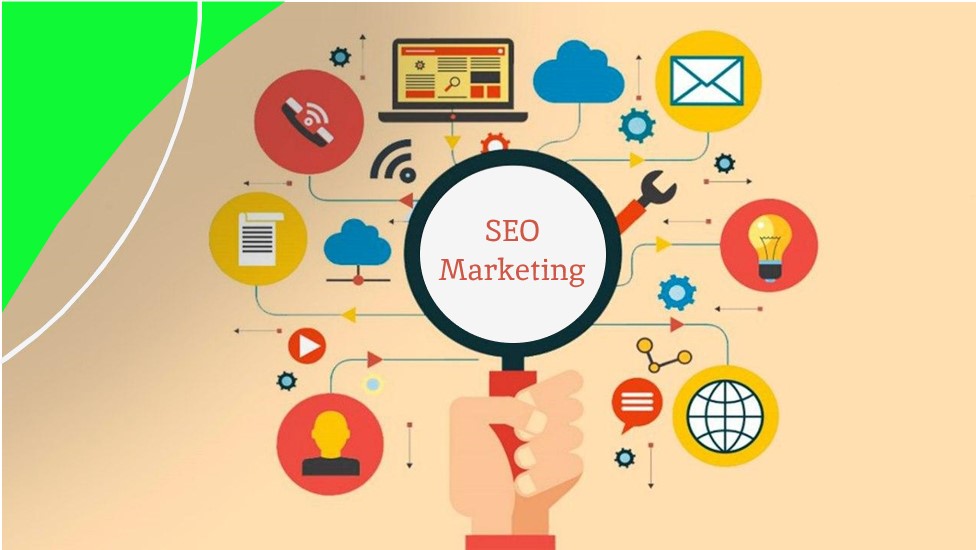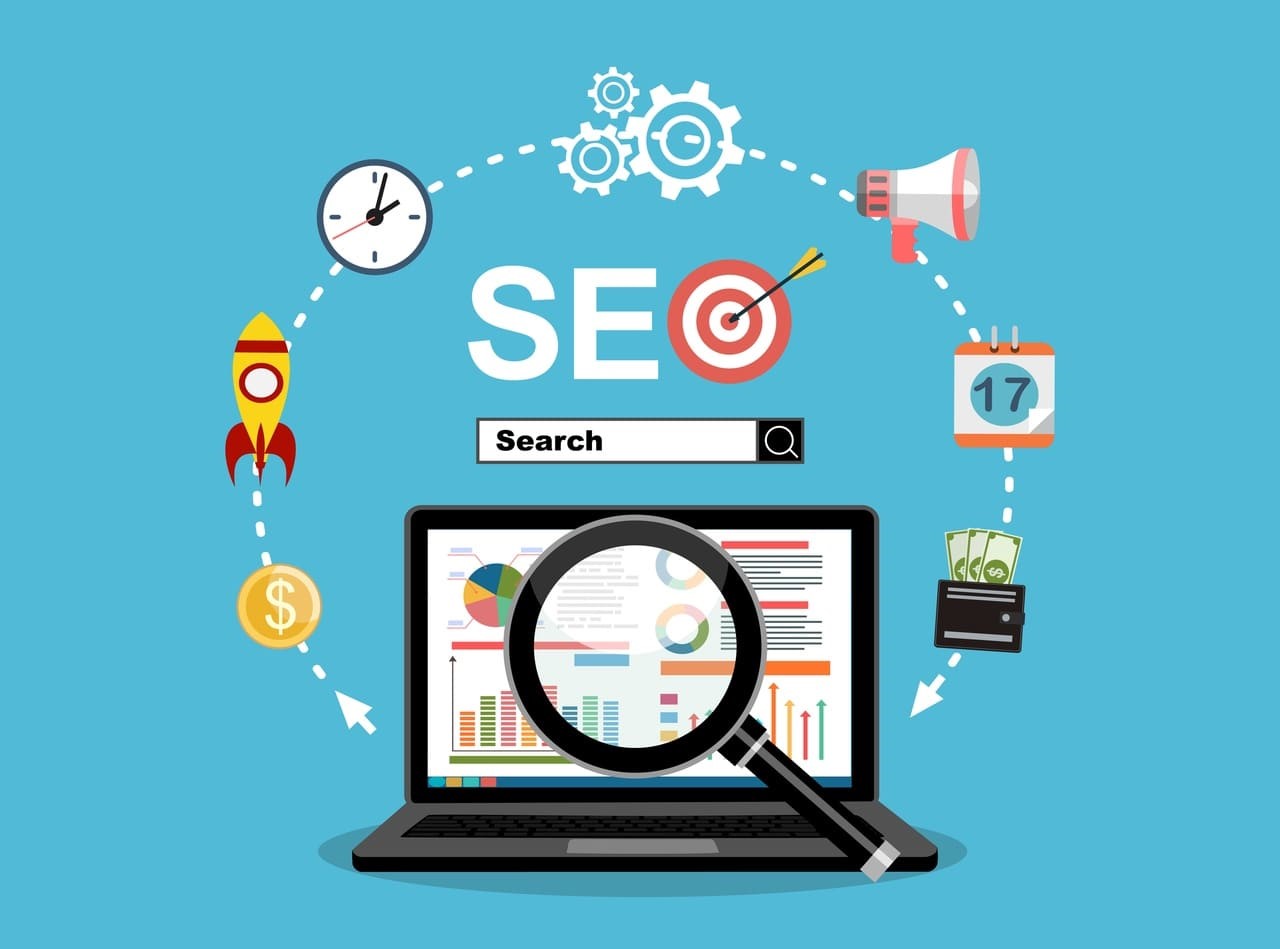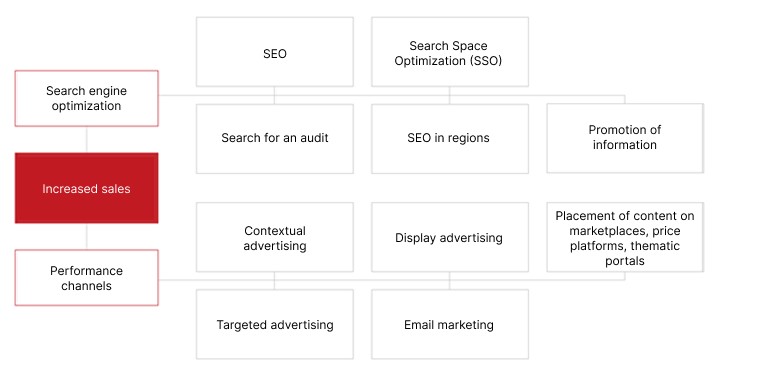SEO marketing is an evolution of traditional SEO optimization. If classic SEO focuses on improving search rankings, SEO marketing is a broader concept. This is a strategy that includes not only optimizing the content and technical aspects of the site, but also actively interacting with the target audience, creating quality content, working with social networks and other marketing tools.

1. Focus on audience engagement
2. Use of social networks:
3. Content type:
4. Promotion purpose:
5. Analytics approach:
6. Time frame:
7. Promotion methods:

Lasting results: One of the main benefits of SEO marketing is long-term results. A well-optimized content and website can maintain high rankings in search results for a long time, while also providing a steady flow of traffic.
Efficiency in conversions: Traffic attracted through search queries is often characterized by high conversion potential. This means that users who are actively searching for information or products are more likely to complete targeted actions, such as making a purchase or registering.
Increased trust and authority: Positioning in search results is considered a sign of trust from search engines. Namely, this helps strengthen the brand’s authority in the eyes of users.
Target traffic: SEO marketing aims to attract target audiences who are actively looking for information or products. Overall, this reduces the likelihood of attracting random traffic, making it more valuable.
Cost savings: Compared to paid advertising campaigns, SEO marketing provides longer-term results without the need for constant financial investment in each click.
Adaptation to change: SEO marketing allows you to quickly adapt to changes in search algorithms. To ensure continuous data analysis, optimization strategies allow you to maintain high visibility even as search engine requirements change.
Interaction with local clients: For local businesses, SEO marketing provides an opportunity to attract local customers. Optimizing for queries along with location helps attract those looking for products or services in a specific region.
Measurement and analysis of results: SEO marketing provides access to various analytics tools so that you can measure campaign results in detail, identify weaknesses and carry out effective optimization.

1. Analysis of the initial situation:
2. Key query and content strategy:
3. Website optimization:
4. Social Media Marketing:
5. Email Marketing:
6. Interactive content:
7. Analytics and optimization:
8. Blogging and interaction with communities:

Interactive content: SEO marketing focuses on creating interactive content such as surveys, tests, webinars, and videos. This allows you to interact with your audience, encourage participation, and create a deeper emotional experience.
Social Media Marketing: One of the key features of SEO marketing is the integration of social networks into the promotion strategy. Creation and support of active
Personalized Content: SEO marketing excels at creating content tailored to the needs and interests of specific audience segments. Personalized approaches improve user experience and increase engagement.
Omnichannel approach: Unlike classic SEO, SEO marketing involves using a variety of channels to interact with the target audience. This includes not only search engines, but also social media, email, content marketing and other channels.
Analytics and measurement of results: Particular attention is paid to analytics systems to measure the effectiveness of campaigns. SEO marketing actively uses data to continually optimize strategy, rather than simply monitor search rankings.
Community participation: SEO marketing involves creating and participating in online communities where a brand can interact with customers, answer questions, collect feedback, and build its industry expertise.

Content optimization: SEO marketing involves creating unique, informative, and optimized content. This includes working with keywords, creating titles, descriptions and meta tags, and ensuring readability and value for users.
Use of social networks: Effective social media marketing is becoming an integral part of SEO marketing. Regular publications, promotions, interaction with subscribers and distribution of content through social networks help increase your online presence.
Email Marketing: Personalized and relevant email campaigns are an effective SEO marketing tool. They help maintain communication with the audience, inform about news and offers, and increase loyalty.
Creation of interactive content: SEO marketing makes heavy use of interactive content such as surveys, tests, calculators, and videos. These elements attract attention, drive engagement, and improve the user experience.
Blogging and Content Marketing: Regular blog posts, informative articles, guides, and research help build brand authority and drive traffic through search engines.
Optimization for mobile devices: Given the mobility of today’s users, SEO marketing involves optimizing your content and website for mobile devices, which improves the user experience and search engine rankings.
Affiliate Marketing: Collaborating with other brands and participating in affiliate programs helps expand your audience and increase your overall online visibility.
Analysis and optimization: Continuous monitoring of analytics and performance data helps optimize your SEO marketing strategy. This includes adjusting keywords, improving content, adapting to the requirements of search engine algorithms and many other aspects.
The distinctive features and methods of promotion in SEO marketing provide a wider range of exposure to the audience and more effective interaction with users, which makes this approach more modern and adapted to the requirements of modern digital marketing.

SEO marketing is a more comprehensive and effective approach to promoting in the digital space. The realm of classic SEO optimization, which focuses only on search rankings, gives way to the powerful capabilities of SEO marketing, which creates sustainable relationships with audiences and covers a variety of interaction channels.
Differences in approaches can affect search rankings. SEO marketing can focus on creating better and more engaging content and engaging with audiences through social media. The question may be about how these factors affect visibility in search results compared to traditional SEO.
This question aims to identify specific elements that are added to SEO marketing, such as using social media, creating viral content, working with influencers, etc. Comparing these components to what classic SEO offers can help you understand which techniques are effective in different contexts.
Considering which factors, such as social media engagement, content quality, and overall online reputation, play a key role in search engine algorithms today will help you better tailor strategies as you move from traditional SEO to SEO marketing.